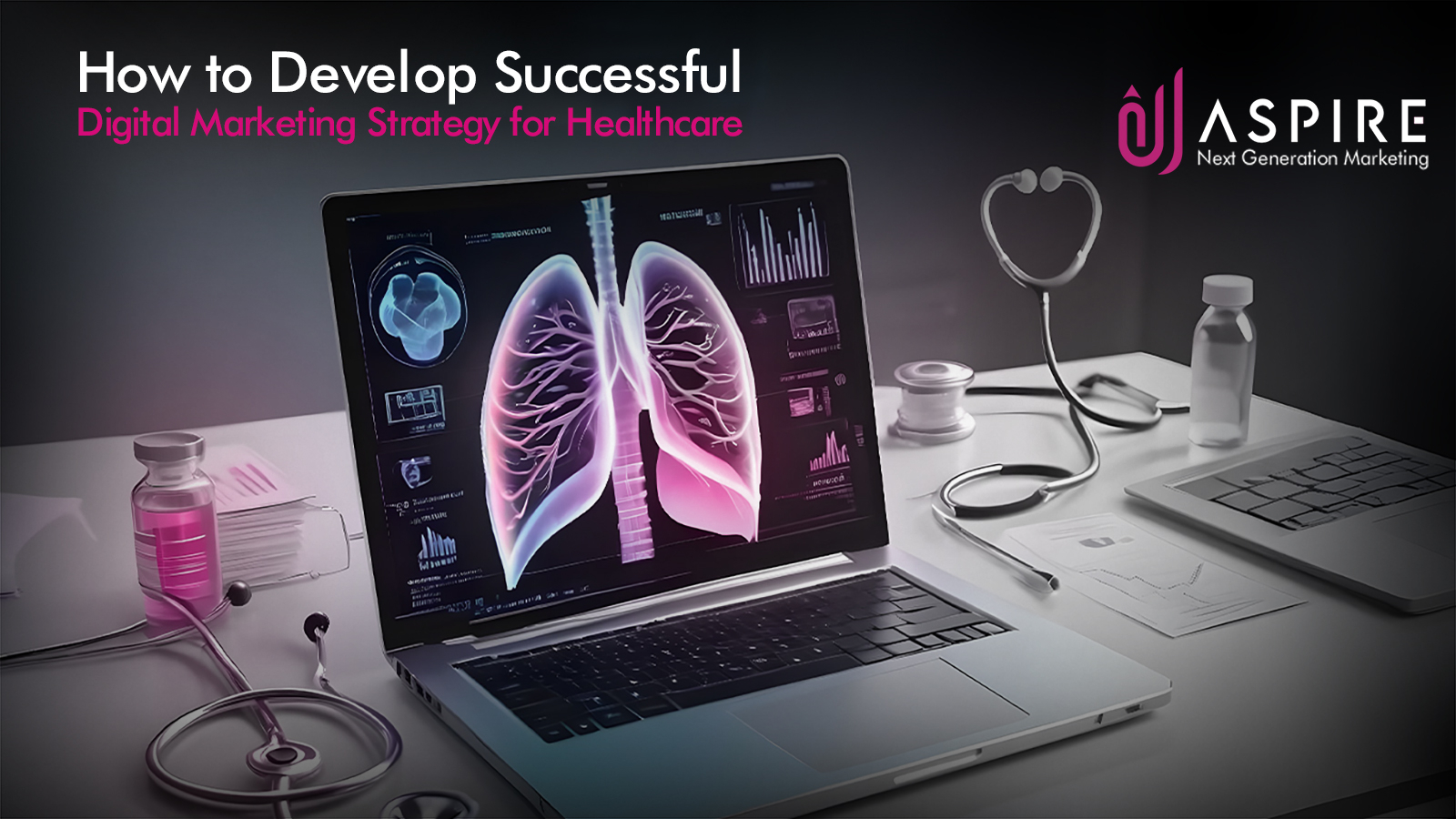In this digital-first age, healthcare providers looking to bring their practice online and attract new patients while retaining current ones must embrace a robust digital marketing strategy. Given that patient and consumerism have made healthcare a competitive industry in 2019 hospitals aren’t able to ignore this trend either, particularly if your practice hopes for patients to walk through your doors — sure they may even hope same-day scheduling at their fingertips but you need to be where the money is, make no mistake about it. Here are a few steps you need to follow if you want to create an effective healthcare digital marketing strategy.
Table of Contents
Define Your Target Audience
In the realm of healthcare as a digital marketing strategy, a well-defined target audience is not just an advantage but also essential for making an effective digital marketing strategy. Understanding who your ideal patients are allows you to tailor your message, optimize your content, and ultimately, attract and retain the right patients. Lack of a defined target audience can cause your digital marketing strategy to become unfocused and as a result waste resources, and time and lose profitable opportunities.

Improve Engagement:
Adapt your social media and email marketing to reach out more actively to an appropriate audience as a Digital marketing strategy.
Define Success:
Map the outcomes of your campaigns and modify plans through audience fightback or statistical information.
Actionable Tip:
Regularly collect and interpret data, so you can make your understanding of the target audience to help adjust digital marketing tactics. By following this iterative process, you consistently adapt your digital marketing strategy to the changing needs of your audience.
Utilize SEO
This is especially true for the uber-competitive healthcare sector, where breaking through with digital marketing makes or breaks you in attracting and retaining new patients. Search Engine Optimization (SEO) is one of the major factors that need to be included in a healthcare digital marketing strategy, so let´s see why you need it as part of your daily routine. This means your practice website shows up at the top of search engine results pages (SERPs) exposing more potential patients in need of healthcare services through your digital marketing strategy.
Why SEO is essential
In a word, SEO stands for Search Engine Optimization and literally, that is all about how to grow the ranking of your website/ content in search engines like Google. And what that translates to is showing up at the top of results on health information or services when patients are searching for them. Effective SEO helps by:
- Improve Visibility: This of course gets you more visibility and hence traffic to your website
- Establish Trust: An SEO-optimized website is more trustworthy and authentic.
- Get Targeted Traffic: SEO allows you to target patients looking for healthcare services, increasing the likelihood of conversions.
On-Site SEO strategy:
This includes optimizing the individual pages of your website to rank for and get relevant traffic. Key on-page elements include:
- Title Tags: You want an optimized title tag, that includes your primary keyword and will help increase visibility in search results (rankings) Learn More: How to Optimize Title
- Meta Descriptions: Consistently use relevant keywords in the meta descriptions to drive clicks.
- Headings & Subheadings: To build the structure of your content use Headlines; H1, h2, etc.
- URL Structure: Ensure clean URLs with keywords relevant to the type of content
Optimize for local search:
Local SEO is crucial for healthcare providers since patients often search for services in their emergency. Optimizing for local search helps ensure your practice appears in local search results and on Google Maps. Local SEO Strategies are:
- Google My Business (GMB)
- Local Keywords
- Local Citations
Ensure Mobile Friendliness
Mobile is playing a bigger role in healthcare web traffic — so ensuring your site looks good and works on mobile devices has become imperative to SEO. Google rewards good mobile responsive sites with higher search rankings by digital marketing strategy. Mobile Optimization tips:
- Responsive Design
- Page Speed
- User Experience
Leverage Content Marketing
In the digital marketing chain, content marketing is a powerful strategy today. Not just churn out content but develop meaningful, topical, and compelling content that resonates with your audience to provoke result-oriented behaviors. Especially when working in a saturated industry like healthcare, content marketing can serve as that differentiator and assist with building trust.

Why Content Marketing is Crucial
Simply content marketing is a smart way of developing and sharing reliable media to attract potential customers or users. This is why it is a critical element of any digital marketing strategy:
- Creates Brand Authority: By producing top-notch content, the public begins to see you as an industry leader and will trust your business more.
- How you generate Organic Traffic: Properly optimized it benefits your SEO ranking so that in turn, makes organic traffic increase.
- Digital marketing strategy Engages and Educates: With content, you engage your existing audience by providing them with valuable information, providing solutions to their problems, answer the questions they are looking for answers.
- Supports Other Marketing Efforts: Your content can be a powerful tool for driving your social media, email marketing, and paid advertising campaigns.
Engage Social Media
Social Media Not Optional Anymore for Healthcare Providers May be in the minds of a few. Social media engagement goes beyond just throwing up updates– it’s about giving – to your patients and followers; that is where the audience connection comes in place. A good social media strategy can have a huge impact on your digital marketing and engagement for physicians, as well as elevate the reputation of providers across healthcare organizations.
Why Social Media Engagement is crucial
With a wide reach and an engaged community, social media is a powerful platform. Benefits for providers of harnessing social media will include:
- Increased Visibility: As social media appeals to so many types of patients, it allows your practice an opportunity for significant visibility among potential clients who spend a lot of time on the best-performing networks.
- Build trust and credibility: Regular, informative, and empathetic interaction on social makes patients more likely to believe what you tell them; it shows your practice is reliable in the area of health advice.
- Patient Education: Social media offers you the chance to provide valuable health resources, tips, and updates that educate your audience or encourage healthy behaviors.
- Creating A Community: Interacting with Patients on Social Media promotes bonds between patients.
Implement Data Analytics
The ever-evolving landscape of digital marketing is where data analytics becomes priceless for healthcare professionals. When used the right way, data analytics can revolutionize the way you approach your digital marketing strategy — enabling data-informed decisions and helping optimize campaigns to drive patient acquisition and retention.

Why Data Analytics is essential
Data analytics refers to a process where data is collected and analyzed and conclusions are given for the use of important decision-making. There are several key advantages of data analytics for healthcare providers:
- Informed decision-making: Being able to see what is and isn’t working in your marketing activities means you can make more informed decisions thereby reducing unnecessary spending.
- Target Patients Better: Analytics help you segment your audience better and make sure the message reaches the targeted patient.
- Better ROI: Measure how your marketing efforts are performing, and fine-tune to improve return on investment (ROI) while cutting down unnecessary expenses.
- Tailored Patient Experience: Data enables you to personalize your marketing efforts according to the unique needs and preferences of your patients, thus giving a better overall experience in using Healthcare.
CONCLUSION
Data analytics is another key component of a successful digital marketing strategy for healthcare. You can do this by setting measurable goals, choosing appropriate metrics and graphs that have visual appeal, and analyzing the data trends extracted from these display tools to drive conversion actions and help achieve your delivery strategies. Aspire Digital Media is dedicated to Develop Successful Digital Marketing Strategies for your Healthcare business.
Read more: How Chatbots Can Accelerate Your Business Growth
FAQ
What is digital marketing strategy and planning?
Digital marketing strategy planning Concepts include the goals which are defined as the audience that is targeted and a Roadmap for using digital channels with tools so that you can attain online business objectives and encourage involvement.
Which digital marketing strategy is best?
Your individual business goals, target audience, and industry play into the ideal digital marketing strategy but a comprehensive one will typically incorporate content marketing, SEO, social warfare, and data-driven advertising into an integrated approach for maximizing reach and engagement.
why digital marketing strategy is important?
In the age of digital competition, a Digital Marketing strategy will deliver the right audience in a second, ensure your resources are effectively used, and drive clear business results for not only SMEs.

